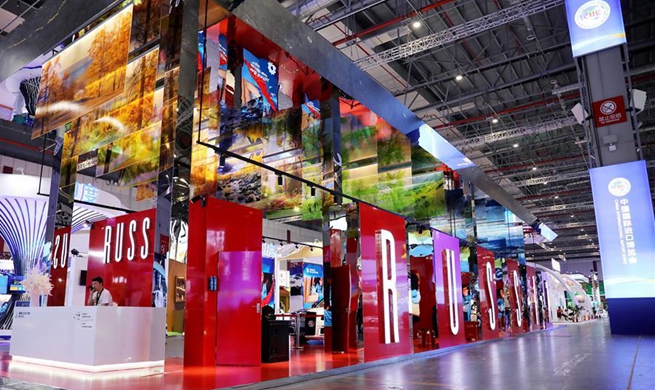by Keren Setton
JERUSALEM, Nov. 2 (Xinhua) -- Hundreds of thousands of deaths every year in the world are considered to be caused by hospital-acquired infections, posing a challenge to health care facilities, hospitals, clinics and nursing homes.
In a small, rusty laboratory in central Israel, a team of researchers has come up with a coating as a way of combating infections. The coating can be put be on hospital bedding and reduce bacteria dramatically. It can also be used on other surfaces, from the gowns worn by patients to socks and carpets.
Developed by Aharon Gedanken, a professor of the Department of Chemistry at the Bar Ilan University, the method uses ultrasonic sound waves to insert the anti-bacteria chemicals into the fabric.
This process is mainly physical, not chemical, which according to Gedanken and his team, is the main reason for the resilience of the coating. There is a strong bond between the miniscule-particles which keeps them in place to kill bacteria.
"I coated cotton with zinc oxide nano-particles and washed it 65 times in hospital washing machines ... with 75 to 92 degrees Celsius," the 79-year old scientist told Xinhua.
These tests were conducted between 2009 to 2013.
These tiny particles are key to success as they provide high surface area coverage, said Gedanken in an exclusive interview with Xinhua.
Sonovia, an Israeli textile company, acquired the commercialization rights from Bar Ilan University. Coated bed sheets, pillow covers and pajamas were successfully tested in Pirogov Hospital in Bulgaria in 2013.
They found "a difference in infection rate between the people who slept on our fabric sheets and those who didn't," Gedanken explained.
According to him, the tests proved a reduction of at least 50 percent in contamination.
The original small machine at the lab has been developed into a large industrial machine by Bruckner Textile Machinery in Germany.
According to Shay Hershcovich, an investment strategist for Sonovia, the technology can be applied to more than just anti-bacterial purposes.
The coating can make surfaces fire-resistant, water-resistant and odor-proof. For example, socks can be manufactured with the coating and the anti-bacteria particles will prevent the well-known smell that they often produce.
There is also an environmental advantage. "We use 60 percent fewer chemicals and save water and energy in the process," Hershcovich told Xinhua.
Gedanken and Sonovia are looking to penetrate into the sports-wear market and the fashion industry, where odor-deterring fabric has a great appeal.
Supermarket bags coated with edible anti-bacteria particles are also being tested, which will elongate the life of fruits and vegetables.

















